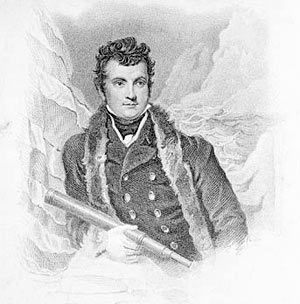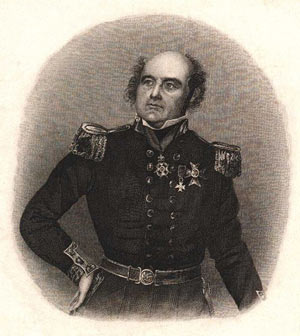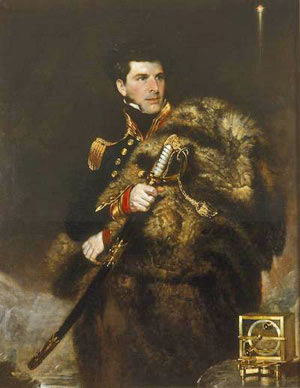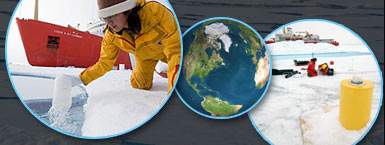The Arctic: Exploration Timeline


Portrait of William Edward Parry from the National Archives of Canada. © Public domain.

Portrait of John Franklin. © Public domain.

Portrait of James Clark Ross. © Public domain.
1819-1831
The search for the Northwest Passage is resumed.
William Edward Parry, a British naval officer, takes his first voyage in search of the Northwest Passage. This is the first expedition to enter the Arctic Archipelago. He reached 110°W before ice prevented him going further, and the members of the expedition had to winter over on Melville Island.
1819-1822
John Franklin, another English sea captain, sets out on an overland and canoe expedition up the Coppermine River to explore the north coast of America. He planned to meet up with Parry who was coming by sea. Unfortunately, it ends disastrously with 11 of its 20 members of the expedition losing their lives, most of them dying from starvation.
1821-1823
William Edward Parry leaves on his second voyage in search of the Northwest Passage with his ships Hecla and Fury. He was to go through Hudson Strait and explore the territory west of Baffin Island. Once again, he was forced to winter over. A group of native Inuits told him of a strait that led to the sea in the west. Once the ice cleared, Parry set sail to find the strait. He did so, but it was covered with ice. After spending yet another winter in the region in the hope the ice would clear, he had to end the expedition.
1824-1825
Parry sails on his third and final voyage to the Canadian Arctic. Encountering shifting ice, the Fury was pushed on shore and sustained serious damage. Parry abandoned it, taking all the crew on board Hecla, and decided to return to England.
1827
Parry heads north again, this time attempting to reach the North Pole via Spitsbergen. He reaches 82°45’N and establishes a farthest north that stands for 52 years.
1831
James Clark Ross, who had sailed with Parry on the previous expeditions and later led an expedition to Antarctica, resumes the search for the Northwest Passage. He is the first to reach the North Magnetic Pole. After being trapped in the ice for several winters, Ross abandons his ship, and it is 4 years before the expedition returned home.
« Previous Page | Next Page »

